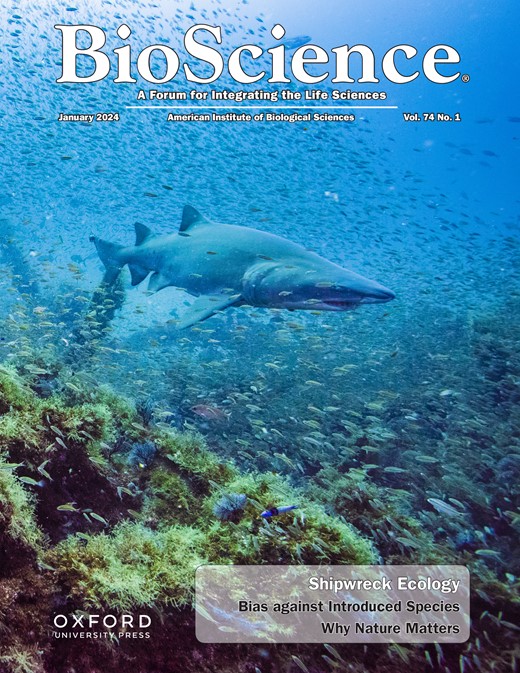Assessing the breadth and multidisciplinarity of the conservation curriculum in the United Kingdom and Australia
IF 7.6
1区 生物学
Q1 BIOLOGY
引用次数: 0
Abstract
There have been repeated calls to train conservationists capable of transcending disciplinary boundaries. However, little empirical work has been done to document conservation teaching. We investigate the content taught in conservation higher education across the United Kingdom and Australia. Using data from an online survey and content analysis of module descriptions, we assess the prevalence of subject areas in 146 conservation modules and topics in 368 conservation modules and 62 conservation degrees. Biological sciences subject areas were represented in 92% of the modules, whereas social sciences subject areas only featured in 60% and humanities in 24%. Of the modules teaching biological sciences subject areas, 84% included biological sciences faculty but only 31% of the modules covering social sciences subject areas included faculty from the social sciences. Who teaches matters. The disciplinary expertise in conservation education needs to diversify to train conservationists capable of addressing conservation challenges. This requires institutional changes and support from prominent societies to promote interdisciplinary education.评估英国和澳大利亚保护课程的广度和多学科性
人们一再呼吁培养能够跨越学科界限的保护工作者。然而,很少有实证工作记录保护教学。我们调查了英国和澳大利亚保护高等教育的教学内容。通过在线调查数据和模块描述内容分析,我们评估了 146 个保护模块中学科领域的普遍性,以及 368 个保护模块和 62 个保护学位中的主题。生物科学学科领域在 92% 的模块中有所体现,而社会科学学科领域仅占 60%,人文学科占 24%。在教授生物科学学科领域的单元中,84%的单元包括生物科学教师,但在教授社会科学学科领域的单元中,只有 31% 的单元包括社会科学教师。谁来授课很重要。保护教育的学科专业知识需要多样化,以培养能够应对保护挑战的保护工作者。这需要机构改革和著名学会的支持,以促进跨学科教育。
本文章由计算机程序翻译,如有差异,请以英文原文为准。
求助全文
约1分钟内获得全文
求助全文
来源期刊

BioScience
生物-生物学
CiteScore
14.10
自引率
2.00%
发文量
109
审稿时长
3 months
期刊介绍:
BioScience is a monthly journal that has been in publication since 1964. It provides readers with authoritative and current overviews of biological research. The journal is peer-reviewed and heavily cited, making it a reliable source for researchers, educators, and students. In addition to research articles, BioScience also covers topics such as biology education, public policy, history, and the fundamental principles of the biological sciences. This makes the content accessible to a wide range of readers. The journal includes professionally written feature articles that explore the latest advancements in biology. It also features discussions on professional issues, book reviews, news about the American Institute of Biological Sciences (AIBS), and columns on policy (Washington Watch) and education (Eye on Education).
 求助内容:
求助内容: 应助结果提醒方式:
应助结果提醒方式:


